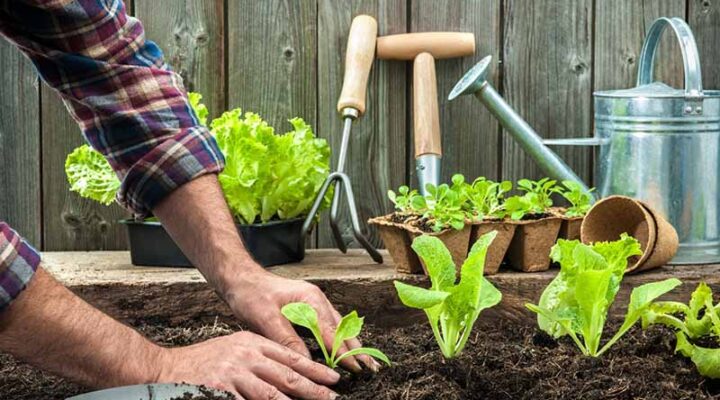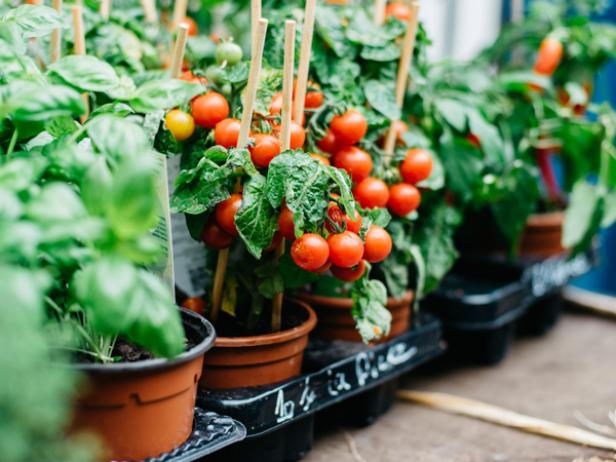
If you have a spacious backyard, you may want to consider digging a pool or not. While it will cost you a lot to construct plus maintain it, there is an even better idea that could benefit you in so many ways. How about starting a garden and growing vegetables in your backyard?
Not entirely sure what is required to start one? You can check here livegrowgarden.com for more on gardening in your backyard.
Why Start a Garden?
You surely want to know if it is worth giving up all that potential space in the yard for vegetables, but there are many reasons you should. It is the access to fresh ingredients to use in their cooking for most people, while for others, it is the need to stay busy in the house (This is mainly for stay at home moms and pops). There are a few more reasons below why you want to start a garden.
- Make ample use of space on your premises
- Keep busy while you work from home, or if you spend a lot of time indoors, it could be an excellent way to spend time outdoors
- Take a new hobby
- Get access to fresh supplies to use in your cooking
- Improve the soil condition of your environment
- Prevent erosion and flooding in your premises
- Trees and flowers are good at purifying the air, so you can be sure of adequate ventilation inside the house
What About Planting Vegetables?
Okay, you’ve finally bought the idea of starting a garden this season and are wondering how to plant vegetables. Why even choose to plant them in the first place. But if you enjoy a balanced diet, you will agree that vegetables play an essential part in the mix. Not too many people like to wait at the market for a fresh supply, and if this is you, why not ensure you contribute to the supply chain.
For starters, they are easy to plant and don’t require any particular practices. But you should be ready to learn about how best to cultivate the vegetable of your choice. And this brings me to the next big question: how do you know which vegetable to plant?
Choosing Vegetables to Plant

This is where it gets confusing—deciding on the vegetable to grow in your garden. While you can choose to cultivate one or more depending on your lot’s size, it does help to grow crops that you have an interest in. If you enjoy watermelon juice or kale in your dish from time to time, why not consider growing them in your yard.
It can be a big task for most people to pick from a long list of options, so the best solution here will be to select one or two vegetables that you regularly use at home and thrives in your area. When it comes to choosing what to cultivate in your garden, you want to. Time and Year
You have to know the time of year when it is right to grow your specific vegetable. The best time to plant veggies is usually in the spring, summer, and early autumn. Certain kinds thrive better in the early or late peak of the seasons, so you want to do your research to find out.
Soil Requirements
Plants require favorable soil conditions to thrive in, and for vegetables, you want it to be loose and well-draining. So sandy and clay soil is not an ideal choice. Most veggies prefer a balance of loam soil with the right looseness to support aeration. You will have to adjust the soil rightly using organic fertilizers if it lacks the required nutrient support.
How to Grow Vegetables for Starters?
Not too much is required to start growing plants in your backyard, but most of the hard work is preparing the land and planting. After that, all that is needed is to maintain the natural conditions until maturity. There are more suggestions here on how to do this, but you want to start by doing the following when growing vegetables in your garden.
Clear the Land
Of course, you want to prepare the space you want to use for planting. You could hire help, and you could have the ground leveled in no time. Or you could hire someone if you aren’t cut out for that.
Pick the Right Spot
You want your plant to be well aligned in your yard, so you want to give some thought to where you want to have it. Remember that it will grow out into a tree, so you want to do some imaginative thinking when picking the plant holes.
Pick the Right Dates
It is best to wait until the time is right. So you want to research the favorable dates for your seeds to germinate.
Plant the Seeds
You will then have to plant the seeds on the right date. You will have to use the proper spacing and ensure you bury the seeds at the correct depth. Again, you will have to research this, so you don’t end up with seeds that don’t germinate.
Watering is Important
After seeding the pots, you will have to water the ground regularly to encourage the root’s development. This is the first sign that you are making progress. You will need to get a watering can for this purpose, so you don’t flood the ground using a hose.
Weeding is Mandatory
Another aspect of gardening that you want to be serious about is keeping the weed out. This is where it gets handy for most people. Picking out the grasses from the veggies requires care and precision, and only those with a genuine interest in gardening can pull it off without any fuss. You also want to be careful with using any toxic chemicals in your garden as they could deplete the mineral contents required for growth.
Final Note
There are many ways you could get the best out of the home garden, and if you have been considering starting one lately, now might be the best time to get growing.
Leave a Reply